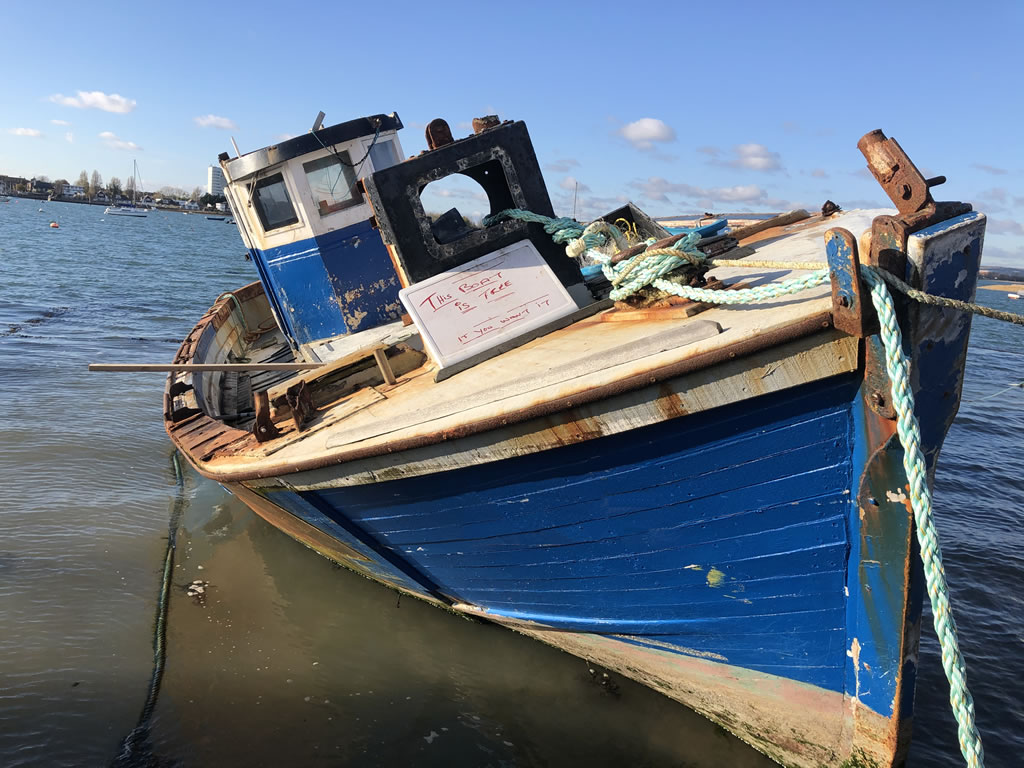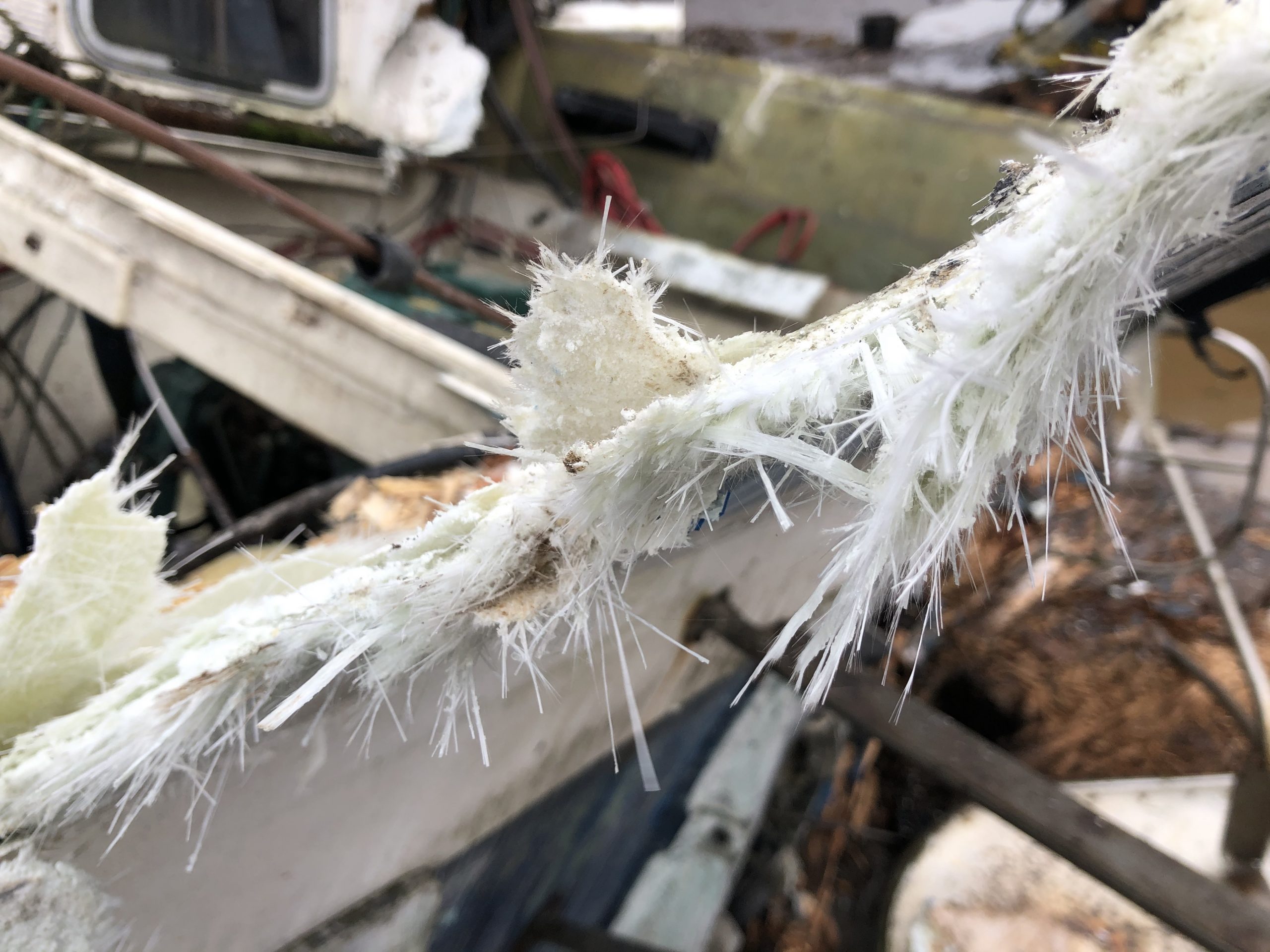Yachting Monthly Article: Harbours ‘clogged by unwanted yachts’

Back in 2016 the Boatbreakers team was asked to contribute to Yachting Monthly. We talked about the issues and challenges we face in the marine recycling industry. Since the article was written and published not much has changed. Boatbreakers has grown and continues to get busier year on year. But now in 2020 the issues we face are all still the same.
Article Source: Yachting Monthly / Written by: Theo Stocker.
Harbours across the UK and Europe are inundated with abandoned yachts, according to new research. The European Union Boat Digest Project estimates that at least 6,600 and possibly as many as 23,600 boats are abandoned every year.
Marinas, sailing clubs and boatyards are being clogged with unwanted glassfibre vessels and forced to foot the bill for their disposal. In the ports of Estepona and Manilva in Spain, the total cost is estimated to be €150,000 (£105,000) a year in lost revenue, environmental damage, legal bills and disposal costs.
GRP yachts have an average lifespan of 40 years. Many are now no longer seaworthy or desirable but are not disposed of as easily as their wooden predecessors. According to the International Council of Marine Industry Associations (ICOMIA), there are six million recreational boats in Europe and in France alone, 13,000 of them become ‘end-of-life’ boats each year.
The problem is exacerbated by the low commercial value of recycled GRP, and increasing costs and legal barriers to landfill disposal of GRP. Sweden has already banned the disposal of GRP to landfill completely.
Brian Clark, British Marine spokesman and ICOMIA environment committee chairman, said: ‘Around 300,000 tonnes of composite waste are produced in Europe every year from vehicles and wind turbines as well as boats. A solution needs to be found.’
The marine industry in the UK and Europe is currently holding a series of conferences to look at options including better education, more infrastructure for dismantling yachts, fairer sharing of the cost burden, better ways of recycling GRP and better yacht design to aid the end-of-life recycling.
France, Norway and Japan are currently leading the field in yacht recycling. Since 2005 Japan has recycled more than 6,000 yachts and France now has 23 boatyards offering environmentally friendly yacht disposal services, compared to only one in the UK according to Boat Digest.
Portsmouth-based Boatbreakers scrap two or three yachts per month. ‘We deal with a lot of yachts around 22ft to 24ft in length from the 1970s and 80s,’ said spokesperson Luke Edney.
‘Many people don’t realise the costs involved. Scrapping a 23ft boat may cost around £700, but we always try to help an owner to recover those costs from recyclable materials, and we wouldn’t scrap a yacht that still has value.’
Education is also part of the solution, says Rafel Kurt, a naval architecture and marine engineering lecturer at Strathclyde University, and key researcher for the Boat Digest project.
‘We have developed a training scheme for boatyards about the issues around yacht dismantling and an awareness course to help owners to think about the problem,’ he said. ‘We have also created a ‘dismantling network’ of yards across Europe offering boat recycling services.’ (see www.boatdigest.eu )
‘Owners cannot simply abandon their boat once the costs become too much. There are options, including recycling, but it must be done responsibly.’ said Mr Kurt.
The RYA believes the marine industry has a greater role to play. Cruising manager Stuart Carruthers said: ‘I don’t think it is acceptable for the marine industry to dump the problem of end-of-life boats on the end user. The car industry had the same problem until manufacturers were forced by law to find a solution. The RYA isn’t keen on legislation, but it may be what is required.
Written By: Luke Edney
Luke completed a journalism degree in Brighton University and fortunately for us uses this in his communications, Facebook posts, Tweets and emails to tell all our enquirers and followers what we are up to. Without Luke we would be lost, he runs the office, keeps us organised and is like a terrier and never lets a tricky boat disposal job go un-photographed or Tweeted about.
He also manages all of our enquiries passing them to whoever in the team is the best suited to deal with it. We are teaching Luke how to drive a motorboat or sail a yacht so while he’s learning we suggest you keep out of the Solent!
When he’s not at work he’s a massive football fan (his Dad used to play for Portsmouth FC years ago) and seems to know everything there is to know about any player, anywhere. Next time you ring and he answers, think of a tricky football trivia question and ask him
Date Published: February 22, 2016
Last Modified: June 28, 2022
Related Articles
- Published On: February 1st, 2023
Abandoned and derelict boats are a common sight across not just the UK’s waters but also around the world. As an island nation with so many Marinas, Harbours, Rivers, Lakes and Canals you are never too far from a dead boat.
- Published On: November 13th, 2018
In between the stormy wind and showers this week our team have been out collecting abandoned boats. The boats in question were rowing boats left on a public pontoon.
- Published On: November 26th, 2019
The Boatbreakers team are always on the lookout for boats that we think are neglected or abandoned. Recently we saw an example of a potential boat giveaway.




